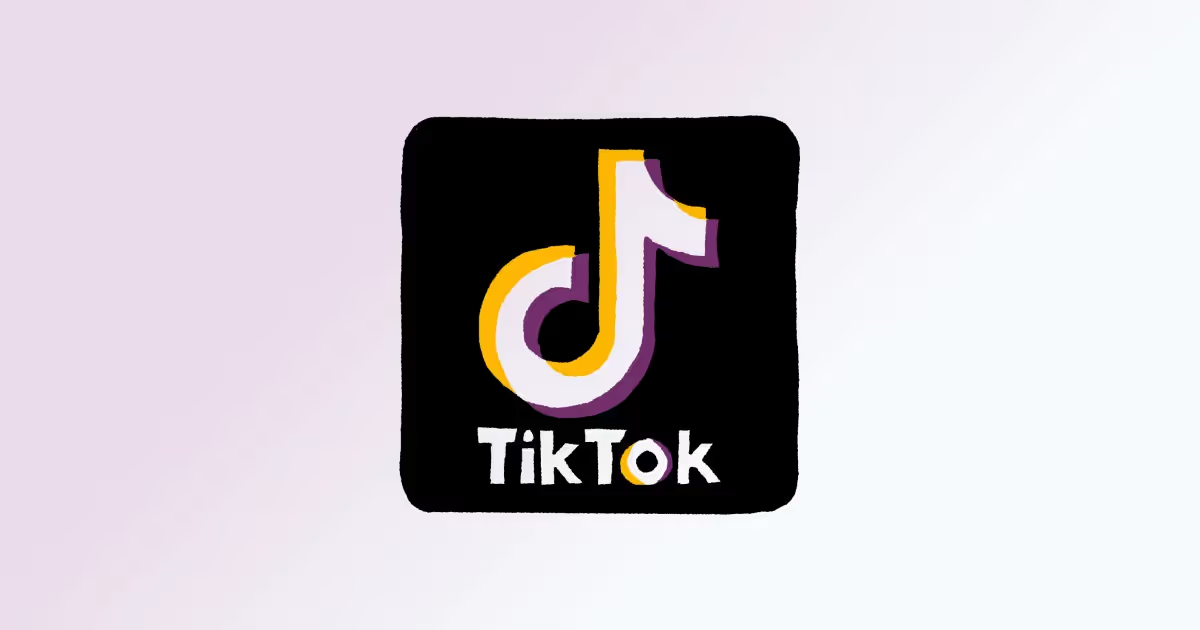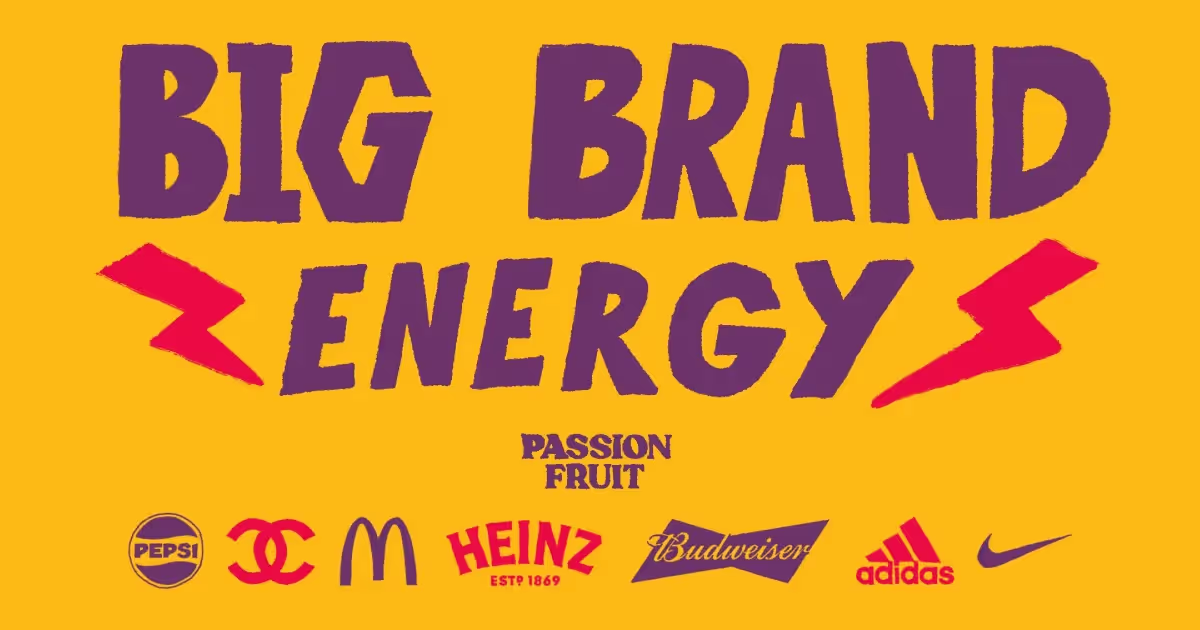Introduction
Luxury brands have found themselves in a digital dilemma. As our world goes all high-tech and cyber, these guys need help with e-commerce. Luxury brands are grappling with bringing that high-end boutique feel to your screen without losing their VIP status, often resulting in a half-baked online experience. Meanwhile, their high-street counterparts are breezing ahead.
But it's not just online shopping where they've been dropping the ball. We're hurtling towards the metaverse and AI is the star of the show. From AI-powered customer service to personalised experiences that know you better than your best friend, today’s marketers need to ride this new wave of innovative storytelling.

Now, let's talk about millennials and Gen Z. When it comes to shopping for luxury items, this lot cares about the planet and craves unique experiences. They're all about eco-friendly vibes, mindfulness and individuality. Guess what? AI is their sidekick and, when done right, can help high-end brands tick all these boxes while elevating their supply chain game and propelling their marketing to new levels.
So, here's the deal: AI is shaping the world of modern luxury, blending real life with the digital realm. If prestigious names want to stay afloat in this new reality, they must embrace the tech takeover or risk being left behind.
Let’s plunge headfirst into how luxury brands can ride the AI wave.
1. Redefining Personalisation
In the realm of luxury, personalisation reigns supreme. It’s all about feeling like someone’s rolled out the red carpet just for you. Enter AI, the genius that can take recognition to a whole new level and enable luxury brands to go beyond simply customer segmentation, crafting a personalisation experience like never before.

Because it’s not about just selling stuff anymore; it's about curating unforgettable interactions throughout the entire buyer's journey.
Beyond simply suggesting cool things, AI can help figure out what resonates with a customer, transforming how premium brands connect with them digitally. Machine-learning algorithms crunch data, predict tastes and serve up recommendations that feel like they were made just for you.
We're talking about an entire digital universe moulded to resonate with every single consumer. By analysing data about a brand's target audience, AI can create content that speaks directly to their needs, interests and pain points. It’s not only about telling a story in a more engaging and impactful way, it’s about telling the right story to each individual. This is where there’s an opportunity to create deep connections that foster brand loyalty.
Take Burberry – they're using AI to analyse their shoppers’ styles, purchases and social media presence to suggest items they’ll adore. They're also keeping it real by sniffing out fake products. Angela Ahrendts, former boss of Burberry, sums it up: "Tech's the magic wand that's taking our personalised customer experience to the stars".

Luxury isn't just about the bling; it's about how you make people feel. This means advertising your products by simply highlighting their features no longer cuts the mustard – you need to create connections through an engaging dialogue. Yves Saint Laurent’s ‘Beauty buddy’ brings AI-powered chatbots to the party. They act as virtual concierges who deliver prompt answers, recommendations and tutorials to mirror the VIP treatment. This makes it super easy for the customer to try before they buy, therefore encouraging spending. Meanwhile, Estee Lauder's AI-powered beauty app helps the visually impaired to apply their makeup – very cool.
Using AI's capabilities, designers can also suggest elements that are likely to catch the eye of their target audience. Products are customised to fit consumer preferences, boosting loyalty to the brand. This means designers can keep their game strong and relevant in the ever-evolving fashion world.
And what about AI in the hospitality sector? Picture a scene at a five-star hotel. AI is the gatekeeper, briefing staff so they know exactly how to greet you, as well as your likes and dislikes. Returning guest? Get ready for a personalised "Welcome back, Ms. Passionfruit” alongside your favourite tipple. That’s what’s in store for those staying at The Boca Raton in South Florida, who are using AI to up the ante when it comes to personalised service. And it doesn’t stop at recognising guests. AI is the backstage advisor, equipping the staff with real-time insights to ensure a seamless experience throughout the guest’s stay – be it what time you like your breakfast in bed or turndown service. It’s about showing you understand your consumer’s lifestyle.
When it comes to personalisation, AI is the ultimate win-win, emerging as the secret sauce that can amp up consumer satisfaction and skyrocket sales by delivering a personalised approach.
2. Diving into the Virtual Luxe-scape
Gen Z's tech wizardry and worldly outlook make them the ideal candidates for VR adventures that emphasise connection and consciousness. Its ability to break down the walls of reality through virtual tours strikes a chord with this generation, while its tendency to form digital cliques aligns with VR-powered brand activations, which create a sense of "you belong here".
Millennials and Gen Z see emotional bonds with products – something VR can deliver at the click of a button. And when it comes to sending waves through their hyper-connected sphere, this kind of content is perfect for creating a viral buzz.
The metaverse has 2.5 billion active users and saw NFT trading surge by 21,000% to USD 17.7 billion in 2021 alone. Forecasts predict the virtual luxury market could soar to USD 50 billion by 2030. In short, this ticket needs to be included in a long-term game plan. So, it’s no surprise that luxury brands are sitting up and taking notice. Big hitters are shuffling the deck and forming teams that deal exclusively with metaverse strategies. Check out Gucci's latest move – hiring a CEO to head up its recently created metaverse divisions, Gucci Vault and Metaverse Ventures, while Balenciaga has also slid into the scene with a dedicated metaverse crew.
When it comes to fashion, VR allows users to rock virtual outfits when in reality they’re really wearing their pyjamas – imagine your Roblox avatar repping those designer sneakers you’ve been dreaming of. Virtual try-ons aren't just practical; they're a fashion playground, saving consumers from shopping regrets and boosting spree satisfaction. Cartier, meanwhile, is using AR to enable customers to try on products, thereby combatting out-of-stock issues. On top of that, they’re using technology to ensure they can create an exact virtual match for any skin tone. About time.

Metaverse fashion shows are also shining at Digital Fashion Week; Balenciaga unveiled their Autumn 2021 collection through a video game titled 'Afterworld: The Age of Tomorrow’ in which users navigate through different zones, each representing a theme from the collection.
When it comes to hospitality, hotels like Shangri-La are using AI to offer VIP-like virtual tours. Luxury car manufacturers are also getting a piece of the action. BMW lets you virtually cruise their cars, while Ferrari collaborated with Fortnite to give players an exclusive virtual preview of their 296 GTB model before its physical debut. Fortnite players had the opportunity to experience the highly detailed and realistic model in the game, generating excitement and anticipation for its real-life rollout.
Nothing hits quite like virtual reality when it comes to creating immersive experiences for today's tech-savvy consumers. These brand activations redefine customer engagement and prioritise connection and awareness, ultimately leading to increased revenue.
3. Taking the Smart Path to Sustainability
We all know sustainability is a big deal. However, the fashion industry is leading the charge in becoming more eco-friendly and opening doors for other brands to follow suit. Not only does this save our planet, but it can also help companies save some serious cash and help run things more smoothly.
AI is playing a huge role in shaking up how we manage and optimise supply chains. Like a digital superhero that can handle the toughest tasks, AI frees up human time and brings loads of other benefits. It can suggest clever ways to make the whole operation more efficient, such as combining global suppliers or finding faster and cheaper shipping routes. Take Stella McCartney, for example. Their data is now analysed using Google’s Cloud tech alongside industry sources to assess the impact of the label’s use of raw materials on key environmental metrics, such as air pollution, land use, and water and energy consumption. Impressive, right?
It can also come in handy when it comes to proving to your consumers you’re not simply ‘greenwashing’. If you’ve got blockchain giving you feedback about how to keep things as eco-friendly as possible, it’s pretty solid evidence that you’re committed to looking after the planet. Moreover, you can use the tech to shout about provenance and sustainability – take Anheuser-Busch InBev, who’ve slapped QR codes on drinks to enable consumers to track their malt journey. It’s that old storytelling chestnut again.

AI is pretty great at forecasting, too. It can predict customer demand and how much supply chain capacity you'll need. This means less waste, reduced pollution and fewer fashion flops. H&M, for instance, has over 200 data scientists on board to predict and analyse trends using AI. They scour the internet for fashion trends, influencing everything from what they buy to where they put stuff in their stores. Luxury brands can take some tips from this to avoid being left out in the cold.
And don't forget about AI virtual try-ons, which not only save you the hassle of ordering ill-fitting clothes but also reduce the environmental impact of returns. Something online retailers could do more to prevent – we’re looking at you, ASOS.
But wait, there’s more. Luxury giants like LVMH, Prada and Mercedes-Benz are embracing blockchain to track and trade high-end goods. They're using it to verify authenticity, trace origin, manage warranties, track repairs and even detail ownership history. The Aura Blockchain Consortium, backed by industry titans, is leading the charge, aiming to create a universal blockchain solution for all luxury brands.
In 2020, King Charles launched the Sustainable Markets Initiative Fashion Task Force (FTF), working on a digital ID system to show consumers how sustainable their clothing is. This system brings transparency and traceability to the fashion value chain, meeting consumer demands and environmental needs. Aura Blockchain Consortium is lending its tech to help FTF members achieve sustainability goals, making supply chain tracking easier for brands and suppliers without any coding expertise.

AI also assists with circularity. The industry is expected to reach a market size of 52 billion U.S. dollars by 2026, with a forecasted compound annual growth rate of 9.6%. Blockchain's distributed ledger makes ethical resale simpler for luxury brands. Take Vacheron Constantin, for example. They’re using a blockchain solution to register watches and provide buyers with a digital passport that can be passed between owners, ensuring privacy and enabling features like insurance and brand commissions during resale.
Implementing blockchain across different value chains won't be a walk in the park, but the rewards are worth it. The luxury industry's emotional connection with customers will evolve as these processes become standard, marking a significant transformation towards a greener future for luxury.
4. Unleashing Marketing in the Metaverse
A survey of 50 top communications executives shows PR is already jumping on the metaverse bandwagon. In fact, 70% of PR professionals are talking about metaverse plans, and 45% are actively working on metaverse projects. This indicates that the industry is really getting the hang of what the metaverse can do.
This aligns with the boom in luxury events – there’s been a significant increase, with the industry set to reach $526 billion globally by 2030. Brands want to transform their identity into something more tangible to engage with their community and create unique experiences. Experiential marketing benefits luxury brands by forging emotional connections with customers, fostering loyalty and enabling hands-on product experiences. This approach also sparks word-of-mouth promotion, enhancing brand awareness and sales through positive customer experiences.
Data supports the effectiveness of experiential marketing: 74% of consumers are more likely to buy products after participating in a branded event and 98% feel more inclined to purchase after attending an activation. A recent study found that 59% of consumers have a more positive brand perception of experiential marketing and 65% find live events and experiences aid their product understanding. Turns out, storytelling through events really does work.
With this in mind, it’s pretty great that virtual events and conferences are now a thing. Brands can host Metaverse Press Conferences, allowing journalists to participate without leaving their desks – much more sustainable than jumping on a plane. Plus, weaving metaverse elements into real-world conferences can supercharge attendees' experiences and reach.
The metaverse also offers some juicy opportunities for B2B campaigns, and PR's knack for strategic communication is perfect for it. Brands can use the metaverse to beef up partnerships, connect with a global audience and cast a wider net. Teaming up with PR firms or freelancers can help companies navigate this new territory, keeping costs in check while making a significant impact.

To make the most of the metaverse, PR professionals should put inclusivity and accessibility at the top of their list. Requiring fancy gear for participation can limit the audience. By creating experiences that anyone can join using simple devices like phones or computers, PR campaigns can reach more people and get them more involved.
Leading brands are already diving headfirst into the metaverse with some attention-grabbing campaigns. Louis Vuitton celebrated its legacy of craftsmanship by making an interactive metaverse game called "Louis the Game", while Gucci and Burberry have been busy in the metaverse marketplace with NFT collaborations.
These examples show how the metaverse can be an awesome platform for iconic brands to tell their stories and get people excited in seriously cool ways.
So, let’s take a look at how three leading luxury brands are using AI…
These brands have started using AI to make their customers' experiences better and improve their products. But there's still a lot of untapped potential; employing AI to become more sustainable, offer more personalised experiences and step up your marketing game is the way to attract consumers in 2023 and beyond. In short, it’s about future-proofing your business.
1. Aman
How are they using AI today?
Aman, the luxury hotel brand known for whisking guests away from the hustle and bustle of modern life, is embracing digital transformation while staying true to its philosophy. With hotels in 21 different countries, they understand the role technology plays in enhancing guest experiences, but they're careful to tailor it to suit each location's distinct character.
Archie Natividad, Aman's Group IT Director, is all about simplifying things for guests using artificial intelligence. They've teamed up with companies like DigiValet and TRG International to take their tech offerings up a notch. Guests can now use iPads to control room lighting and temperature to create the perfect ambience and to access hotel information.

But it's not just about sophisticated gadgets. Aman values partnerships with companies that truly understand their business needs. They've teamed up with big names like Oracle, Samsotech ID and Arcserve Aman to stay ahead in technology while still delivering the personalised and exceptional guest experience they're known for. They're also working behind the scenes to fine-tune their accounting systems, ensuring every aspect of their operation runs smoothly.
How they can do more: Passionfruit Perspective
Imagine this: immersive experiences that let people step into Aman's rooms and hotels virtually before making a reservation. It's like having a "digital twin" of the hotel. This provides a taste of luxury and reduces the environmental impact, especially for corporate events. No more need for in-person planning; everything can be done right from the office. You can virtually place yourself in the hotel as you browse their online photo gallery. You're taken on a journey through the hotel room, even seeing your belongings in the room or perhaps a digital version of yourself exploring the space. It's like stepping into a digital simulation.

Aman could take a page from Marriott Bonvoy's book and engage its audience through gaming, too. They partnered with Bidstack and Publicis to tap into the gaming world, becoming the first major hotel brand to enter the metaverse. They focused on native in-game ad placements, creating virtual experiences mirroring the real world. The results were impressive, with over 46 million impressions, 26.31 minutes of engagement per user, and an 85% noticeability rate for in-game ads. These initiatives develop deeper connections with potential guests before they become paying customers.
Accor Hotels is also diving into the metaverse. Not only have they started creating virtual hotel spaces, but they’re also using AI to enable guests to experience the destination. For instance, in Pompeii, Italy, they're using the metaverse to show would-be guests what the city looked like before the volcanic eruption. They're also looking at using the metaverse to train their staff. Imagine learning the ropes in a virtual world, like how to check someone in or solve issues, all without impacting real customers. Using AI to teach employees and provide real-time insights into guests’ preferences could help propel Aman’s level of personalised service to new heights.
And let's not forget sustainability. Aman could leverage AI to track energy consumption and waste reduction. This isn't just about being environmentally responsible; it's also a fantastic marketing opportunity. Highlighting these efforts can resonate deeply with their audience and others who care about the planet.
Finally, we all know that Gen Z is obsessed with heritage – something that Aman has in spades. So why not use QR codes in rooms to shout about their rich history, as well as how they’re preserving that through green initiatives today? The group has plenty of interesting things to talk about, from the materials they use to build their hotels to where they source their food. Getting the stories out there using blockchain seems like a no-brainer.
So, while Aman already provides a unique luxury experience, AI creates a whole world of possibilities which can take it to the next level, from immersive previews to eco-friendly practices that speak to the hearts of future guests. It's about evolving luxury while staying true to the essence of Aman.
2. Jaguar Land Rover
How are they using AI today?
Known for its luxury cars and SUVs, Jaguar Land Rover (JLR) has partnered with Everstream Analytics, which is all about predicting stuff using AI. They're using AI to keep a close eye on their supply chain in real-time, looking out for anything that could mess things up, like natural disasters, worker strikes, data breaches or shipping problems. This helps the company avoid nasty surprises that could slow down their car production and jack up costs.
Barbara Bergmeier, the head honcho of JLR's Industrial Operations, said this AI move is part of their bigger plan to make better luxury electric vehicles. It's all about staying ahead of the game. They reckon that JLR's new AI system will help them deal with all the challenges of making electric cars, which involve some seriously complex global supply chains.
In a nutshell, Jaguar Land Rover uses AI to ensure they can build their luxury cars without any hiccups in the supply chain. It's all part of their grand plan to make the best electric cars out there.

How they can do more: Passionfruit Perspective
How can JLR get people excited about the brand from the get-go? Well, they could start by interacting with their customers on a deeper level.
Picture this: Jaguarland, a mind-blowing car showroom where everything is powered by AI and augmented reality. It's like stepping into a futuristic world where you don't just see the cars; you become one with them. You strap on a VR headset and boom, you're inside a Jaguar or Land Rover. You can touch the interiors, feel the leather and even take it for a virtual spin. It's an event accessible to everyone and incredibly sustainable – no need to fly or drive to a physical showroom.
And here's the kicker: personalisation. Before you enter Jaguarland, they ask you questions like what music and colours you like, and how you'd describe yourself. Then, when you hop into the virtual car, your favourite song is playing, the interiors match your preferred colours and it feels like they've custom-made the experience just for you.

JLR could also take a page from Ferrari's book and host incredible car launch events. Think exclusive previews of their latest models, both in person and in the metaverse. You could virtually sit in the driver's seat, explore every inch of the car, and even take it for a spin in a virtual world. Plus, they could create AI-powered showrooms that are like having a personal concierge. These virtual assistants greet you, help you pick the perfect car based on your preferences and even provide virtual tours.
They could also take inspiration from Mercedes-Benz’s book, which boosted its in-car experience by integrating ChatGPT into its voice assistant, MBUX. This clever move allows drivers to have more natural and informed interactions with their vehicles, offering answers to complex questions and destination details for around 900,000 cars. It goes the extra mile by suggesting restaurants, making the driver feel safer, and it’s more convenient – no more fiddling with smartphones.
So, JLR has some seriously exciting options to enhance its brand and customer experience. The possibilities are endless, from sustainability to immersive showrooms, personalisation and virtual car launches. It's all about making JLR not just a car brand but an unforgettable experience.
3. Remy Cointreau
How are they using AI today?
Rémy Cointreau, the folks behind top-notch spirits with centuries of history, wanted to stay relevant in the ever-changing drink scene. They decided to do more than just sell their famous drinks like Rémy Martin cognac; they wanted to sell an entire luxurious experience.
To make this happen, they headed to the cloud. They chose Google Cloud Platform to run their show in Europe, with plans to go global. This cloud move gave them super speed and flexibility. Now, they can adjust things quickly instead of waiting around for months.

They also teamed up with Salesforce to make every customer feel extra special with personalised experiences. Plus, they ditched the old-school data delay and can now analyse live data, which is a real game-changer – especially in managing production.
How they can do more: Passionfruit Perspective
The metaverse presents a thrilling opportunity for Rémy Cointreau to craft exceptional drinking experiences and deepen connections with its audience. Just as drinks heavyweight Molson Coors explores the metaverse to engage with consumers authentically, Rémy Cointreau can embark on a journey into this virtual world, bridging the gap between the real and digital realms.
What about creating an immersive augmented reality game that transforms consumption into an exhilarating adventure? As enthusiasts navigate city streets, they uncover surprises, collect NFTs and interact with brand mascots. Rémy Cointreau can turn each bottle into a portal of enchantment through AR, weaving captivating narratives into every scan and immersing consumers in its heritage.

Rémy Cointreau can also join forces with gaming legends and e-sports icons, just like Katy Perry's De Soi. By featuring its spirits in virtual worlds and in-game events, Rémy Cointreau can establish a strong presence in the gaming universe. Exclusive in-game rewards, personalised experiences and virtual meet-and-greets with gaming idols can elevate the brand.
Drawing inspiration from Kinahan's Irish Whiskey's digital ambassadors, Rémy Cointreau can explore sonic branding. Crafting unique soundscapes, music-inspired campaigns, virtual concerts and immersive audio experiences can create an unforgettable connection with consumers, reinforcing brand loyalty with every tune.
Rémy Cointreau's objective of selling the "French way of living" can also be fully realised through the metaverse. Using AR and AI, customers can embark on virtual journeys through the landscapes of France, learning about the history, culture and lifestyle associated with the brand’s spirits. A fantastic example of bringing a brand to life by immersing consumers in a destination is Molson Coors’ 'El alma de Madrid' campaign. This features on-pack QR codes, granting imbibers access to the 'Conectada' platform with surprising brand facts and personalised city maps leading to secret gigs. Rémy Cointreau – take note.
Finally, by utilising blockchain technology, QR codes and AI-driven inventory management, the brand can transparently showcase its sustainable sourcing and production methods. Customers can scan QR codes on products to access information about the brand's sustainability efforts, provenance and heritage (all ranked highly by Gen Z) reinforcing the commitment to eco-conscious consumers.
From whisking its consumers to France for a cognac tasting to using blockchain technology to shout about provenance, Remy Cointreau has a golden opportunity to capitalise on the capabilities of AI – so, cheers to a new dimension of customer engagement!
Conclusion
In the fast-paced world of luxury brands, jumping on the AI bandwagon isn't just a trend – it's a necessity to stay at the top. With Gen Z and millennials becoming a dominant force in consumer markets, luxury brands need to align with their values, like sustainability and tech-savviness, which AI enables.
AI isn't just about automating tasks; it's a game-changer for PR and marketing. AI allows luxury brands to connect with their audience like never before, through immersive storytelling experiences that bring them to life. Meanwhile, brands that dive into this realm become pioneers, setting new standards for customer engagement.
In today's ever-evolving digital landscape, luxury brands can't afford to lag behind. Embracing AI isn't just a smart move. It's a ticket to securing the future by reaching a new generation of consumers, championing sustainability, delivering personalisation and harnessing the power of immersive experiences. It's the conversation every luxury brand should be having – right now.







